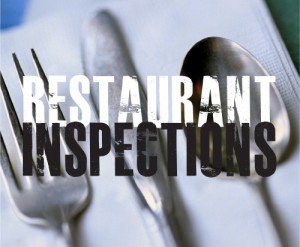
The Prince William Health District inspected Taste of Asian, located at 7921 Heritage Village Plaza in Gainesville, and found 19 violations of the health code.
The inspector cited the restaurant May 16 for four priority violations, seven priority foundation violations and eight core violations.
According to the Health District report, these violations include:
Priority (Repeat): Employees and conditional employees are not aware of the reporting procedures concerning information about their health and activities if they are suspected of causing, or being exposed to a confirmed disease outbreak caused by Typhoid fever (caused by Salmonella Typhi), Salmonella (nontyphodial), Shigella spp., Shiga toxin-producing Escherichia coli, Hepatitis A virus or Norovirus
Priority: Oil mixed garlic is unsound or adulterated. It was stored at room temperature
Priority (Corrected During Inspection): Dumpling (54°F) and lettuce (43°F) cold holding at improper temperatures
Priority (Repeat): Due to improper operation of the low temperature chemical sanitizing mechanical warewashing machine, equipment food-contact surfaces and utensils are not sanitized after cleaning. (See 12 VAC 5-421-1700)
Priority Foundation: The person in charge failed to explain the correct procedures for cleaning and sanitizing utensils and food-contact surfaces of equipment.
Priority Foundation: This food establishment has not established procedures for cleaning up vomiting or diarrheal events that happen in the facility.
Priority Foundation: Observed employees directly contacting exposed noodles with their bare hands or arms in a manner that could contaminate the food.
Priority Foundation: This food establishment has not obtained a variance before engaging in a food processing method for which a variance is required. Sushi rice
Priority Foundation: A review of the menu with the foodservice operator indicates that there is no consumer advisory for the sushi salmon, and tuna that may be served raw and/or undercooked
Priority Foundation: There is no properly working test kit provided in the facility for monitoring the concentration of the chemical sanitizing solutions.
Priority Foundation: Adequate hand drying means is not provided in handwash area at prep area.
Core: Food storage containers or working containers of food ingredients (sugar, garlic, soy sauce) that have been removed from their original containers are not labeled to identify the contents.
Core (Repeat): Dispensing utensils for rice improperly stored in a container of water at 74°F between uses. .
Core (Repeat): Wiping cloths improperly stored on the prep table and cooking area between use.
Core (Repeat - Corrected During Inspection): Food (boxes of chicken and pork, and cabbage in a container) stored on the floor or food stored less than 6" above the floor in the walk in cooler and freezer.
Core (Repeat - Corrected During Inspection): Food containers for cooling noodle in the walk in cooler are arranged so as not allow for maximum heat transfer.
Core: There was no temperature measuring device located in the prep cooler and cooler at the front bar area.
Core: Observed accumulations of dust, dirt, food residue or other debris on the following non-food-contact surfaces: Ice machine.
Core: There is no covered refuse container for the disposal of feminine napkins in the ladies room stall.
Click here to search for detailed information about this restaurant.
“Restaurant inspections are normally scheduled for one to four inspections per year, depending on the complexity of the menu, how much food is made from raw products, and how much is made in advance rather than cooked-to-order,” the agency states on their website.
When inspectors observe violations during a routine inspection, they are detailed in a report and classified as either critical (posing a direct or immediate threat to consumers) or non-critical (a failure of cleaning or maintenance), they said.
These inspections are considered by the Health District as a snapshot of a specific day of operation.
According to the agency, “Ideally, an operation would have no critical violations, or none which are not corrected immediately and not repeated. In our experience, it is unrealistic to expect that a complex, full-service food operation can routinely avoid any violations.”
Support Bristow Beat - Donate Today!